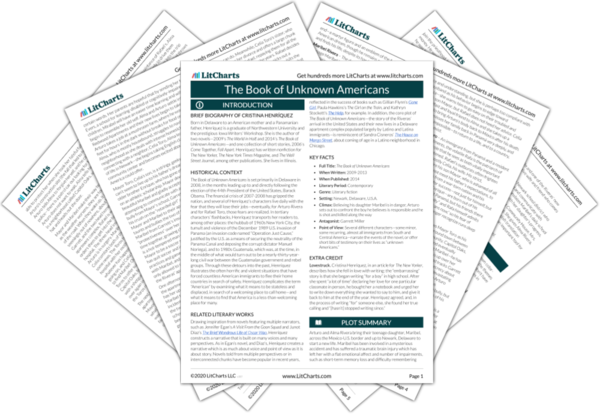Despite these feelings of futility, Alma and Arturo experience a resurgence of hope on Maribel’s first day of school. They try not to let themselves become demoralized by her obvious confusion—it is useless to try to stay ahead of it or to sense when it might rear its head. As they send Maribel off to start her new life, they experience both the naivete of hope and the dark cloud of fear—they long for Maribel to succeed in her new surroundings, but they know that there is nothing more they can do to ensure that this happens. Moving to America has been the ultimate sacrifice, and all they can do now is wait and see if their gamble will pay off.


